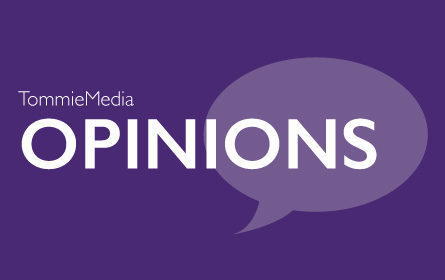“The absence of subjection to foreign domination or despotic government,” “the state of being free within society from oppressive restrictions” and “the state of not being imprisoned or enslaved” all came up at the top of a Google search for the meaning of freedom.
Ask anyone what they believe to be the definition of freedom in America, and I can guarantee a myriad of responses. Above are the fairly standard, textbook answers, but they focus more on the lack of external interference and little on how our expressions of freedom may affect others, which would therefore deny any actual freedom. Freedom is created by our actions, it is not just something that is guaranteed because we live in America. Therefore, freedom in America must be defined in terms of a collective whole, otherwise none will actually exist.
We live in a free country. However, it is our job, as citizens, to maintain that freedom. In the same way our absence of external interference comes at the expense of our armed forces who fight for our freedom, how we choose to express our freedom can come at the expense of those around us. This is why simply saying you are free, or live in a free country, or are free to do whatever you want, does not encompass all of what freedom actually means. That sort of mentality becomes narcissistic and can lead to the oppression of others.
While I am technically free to spout degrading comments toward someone, I am actually not expressing any sort of freedom because it comes at the expense of someone else. Freedom is an avenue for betterment, not belittlement. This example is pretty straightforward, but the same definition tends to get messier when it’s brought into politics.
Politics affect a large portion of our lives, yet the choices of the few in power limit the freedom of others to participate. This means that freedom in the political sphere is lacking. Because of this, people are marching in the streets in order to maintain a small amount of the freedom that they have to contribute to the political process.
We have fought for freedom in our country, but we are not expressing it equally or fully. When institutions and political policies create a dynamic where certain people possess more freedom than others, then we are not living in a completely free country.
It’s not just about not having any external interference personally affect you, it’s how you uphold your freedom so that it does not come at the loss for someone else. Equity is crucial when it comes to understanding this. We are not all going to have equal experiences, but the playing field for which we get to make our own decisions should at least be equitable.
Sam Miner can be reached at mine0034@stthomas.edu



